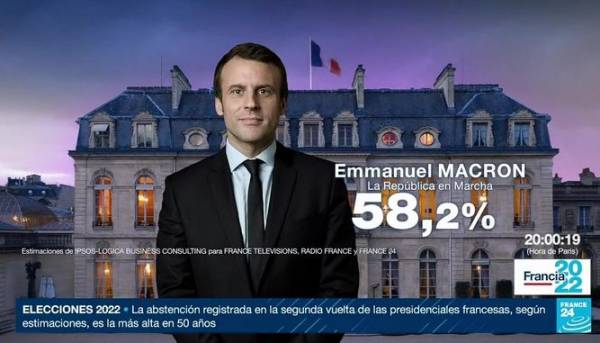
PARIS, April 25th – The Interior Ministry published today the final calculation of the ballots of the French presidential elections, confirming the re-election of Emmanuel Macron with 58.54 percent of the votes cast and 28.01 abstentions. According to the data, when the second round was repeated in 2017, the president received the support of about 18 million 800 thousand people.
Meanwhile, far-right representative Marine Le Pen received some 13 million 300,000 votes, for 41.46 percent, up 2.5 million from the results five years ago. More than 13 million 600,000 of the 48 million 700,000 French called to the polls abstained in yesterday’s election, an unprecedented absence since 1969, when 31 percent of those on the register stopped voting in the presidential election.
In addition to the high level of abstention, three million ballot papers were cast in blank or canceled, for 6.19 percent. Macron became France’s first re-elected president since 2002, when Jacques Chirac defeated far-right Jean-Marie Le Pen, Marine’s father.
However, counting the votes the leader of La República en Marcha received in relation to the total number of registered voters, it was 38.52 percent, a result only better than the 37.51 achieved by Georges Pompidou in 1969 .
Speaking to his supporters on the Champs de Mars last night, the president pledged to rule for all and said he was aware that many French voted for him not to support his ideas and the arrival of the far right prevent the square Elysee Palace. He also felt that challenging but at the same time historic years were ahead, before which he urged his compatriots to be demanding and ambitious.
For her part, Le Pen focused her post-defeat speech on painting the dark panorama she believes the country will experience with her rival’s re-election, according to PL. I fear that the five-year period that is beginning will not break despicable and brutal practices and that Emmanuel Macron will do nothing to mend the rifts that divide our country and make our compatriots suffer, he argued.
The attention of the various sectors of French politics is now turning to the general elections scheduled for June, in which it will be a complicated task for the ruling party to retain control of the National Assembly.

